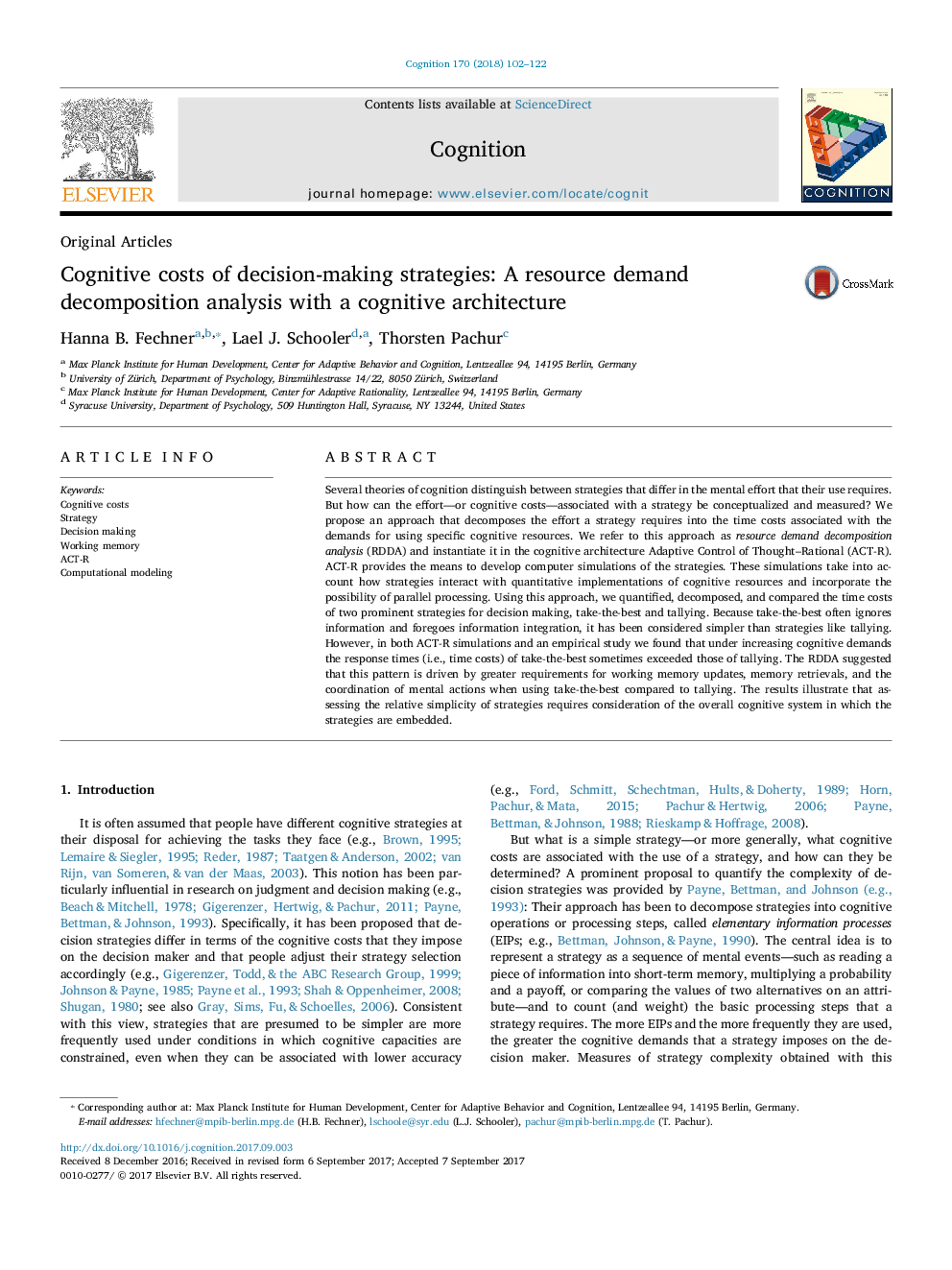ترجمه فارسی عنوان مقاله
هزینه های شناختی از استراتژی های تصمیم گیری: تجزیه منابع با معماری شناختی
عنوان انگلیسی
Cognitive costs of decision-making strategies: A resource demand decomposition analysis with a cognitive architecture
| کد مقاله | سال انتشار | تعداد صفحات مقاله انگلیسی |
|---|---|---|
| 123494 | 2018 | 21 صفحه PDF |
منبع

Publisher : Elsevier - Science Direct (الزویر - ساینس دایرکت)
Journal : Cognition, Volume 170, January 2018, Pages 102-122

